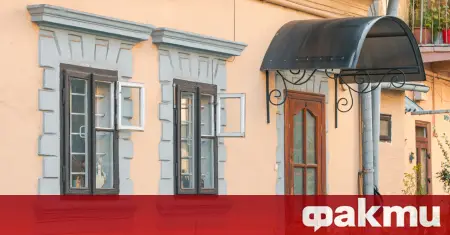Since the European Central Bank started raising interest rates in 2022, there has been no change in private real estate investment, while other investor groups have withdrawn significantly, according to a study by JLL consultancy. In fact, the share of the wealthy increased fivefold to about 10% of the total volume of trade in the first six months of 2024.
Wealthy private investors are buying up offices that have been hit by the double whammy of post-pandemic telecommunications trends and higher interest rates. In Hannover, for example, JLL broke a contract for 70 mln. EUR for the sale of the former headquarters of Deutsche Hypothekenbank – the mortgage arm of regional lender NordLB – to the family office of Carl Gerhold, founder of Hanover-based energy company Getec Group.
In 2023 office buildings accounted for almost a third of property investments made by private buyers, while the share of office transactions in the overall German market fell to 17%. According to Stefan Laimbach, head of office investment at JLL in Germany, large investors are still wary of investing in office space.
“Private money is now easier than institutional money and they are willing to pay attractive prices. Contract for an office worth about 70 mln. EUR in a city like Hannover – who would have thought this would be possible in 2024? ” said Laimbach.
Apart from offices, buildings and other iconic places are preferred by private investors. In March, Union Investment sold Fünf Höfe in Munich, which contains a luxury shopping center as well as offices and apartments, to the family office of German healthcare billionaires Andreas and Thomas Strüngmann. A site near the city’s iconic Frauenkirche church was sold for 700 million. EUR, making it one of the largest commercial property deals in Germany this year.
According to Henning Koch, CEO of asset manager Commerz Real AG, trophy properties such as Fünf Höfe, as well as the lack of major competition, attract private investors to withdraw from the market when other buyers were more active.
“Usually all these investors don’t want to get involved in long bids and price wars, but instead they value secret, unique access,” he said.
Earlier this year, Commerz Real bought several mixed commercial properties in Munich for an unnamed private investor. The asset became available as part of the turmoil that has hit the sector since its previous owner, developer Düsseldorf Centrum Holding, filed for bankruptcy in mid-2023.
Some of the properties sold for an undisclosed sum are located on Maximilianstrasse, Munich’s luxury shopping boulevard, and house luxury brands such as Fendi and Montblanc.
“Private investors are now taking advantage of this rare opportunity to acquire properties that would normally go unsold,” said Koch.
You can see detailed statistics on average real estate prices in Bulgaria by city and region HERE
Add the rating:
☆
☆
☆
☆
☆
2.6
Assessment 2.6 from 5 voice
2024-11-27 07:21:00
#buy #properties #cup #fall #prices #ᐉ #News #Fakti.bg #Properties
**Given the current climate of rising interest rates and inflation, how are both private and institutional investors adapting their strategies to mitigate risk and capitalize on potential opportunities in the German real estate market?**
## Open-Ended Interview Questions Inspired by the Article:
This article touches on several intriguing points regarding the real estate market, especially in Germany. Here’s a breakdown of potential interview questions, categorized by theme:
**1. The Rise of Private Investors:**
* **How has the recent economic climate prompted private investors to become more active in the commercial real estate market?** (Explore motivations behind this shift.)
* **What unique advantages do private investors have over institutional buyers in securing these “trophy properties”?** (Discuss their strategies and access.)
* **Do you think this increased private investment will lead to long-term stability or volatility in the market? Why?** (Encourage predictions and analysis of potential consequences.)
* **Does the focus on iconic locations like Maximilianstrasse signal a shift in buyer preferences, valuing prestige over purely financial returns?** (Investigate the underlying motivations behind these choices.)
**2. The Impact of Developer Bankruptcy and Market Turmoil:**
* **How significant is the role of developer bankruptcies, like Düsseldorf Centrum Holding, in creating opportunities for private investors?** (Assess the ripple effect of such events.)
* **What lessons can be learned from the challenges faced by developers like Düsseldorf Centrum Holding?** (Analyze the current state of the development market.)
* **Do you foresee more bankruptcies and distressed sales in the near future, further shaping the real estate landscape?** (Discuss potential future trends.)
**3. The Broader Context: Interest Rates, Inflation, and Economic Uncertainty:**
* **How are rising interest rates and inflation impacting the decision-making process for both private and institutional investors?** (Analyze the connection between macroeconomic factors and real estate investment.)
* **What strategies are investors employing to navigate this uncertain economic climate?** (Explore risk mitigation techniques.)
* **Do you believe the current market conditions present a “buyer’s market”? Why or why not?** (Encourage a balanced perspective on market dynamics.)
**Structure of the Interview:**
1. **Introduction (5 minutes):** Begin by introducing the topic and providing background information on the current state of the real estate market. Mention the article and its key findings, setting the context for the discussion.
2. **Private Investor Boom (15 minutes):** Dive into the rising prominence of private investors. Discuss their motivations, strategies, and the advantages they hold. Explore the potential long-term implications of their increased involvement.
3. **Developer Troubles and Market Opportunities (15 minutes):** Analyze the impact of developer bankruptcies and market turmoil on real estate investment. Discuss the lessons learned and potential future trends.
4. **Macroeconomic Context (10 minutes):** Connect the dots between interest rates, inflation, and economic uncertainty and their influence on the real estate market. Explore investor strategies for navigating this dynamic environment.
5. **Conclusion (5 minutes):** Summarize key points and offer concluding thoughts on the future of the real estate market in light of these trends.
Remember to encourage open dialog, diverse perspectives, and insightful analysis throughout the interview.

